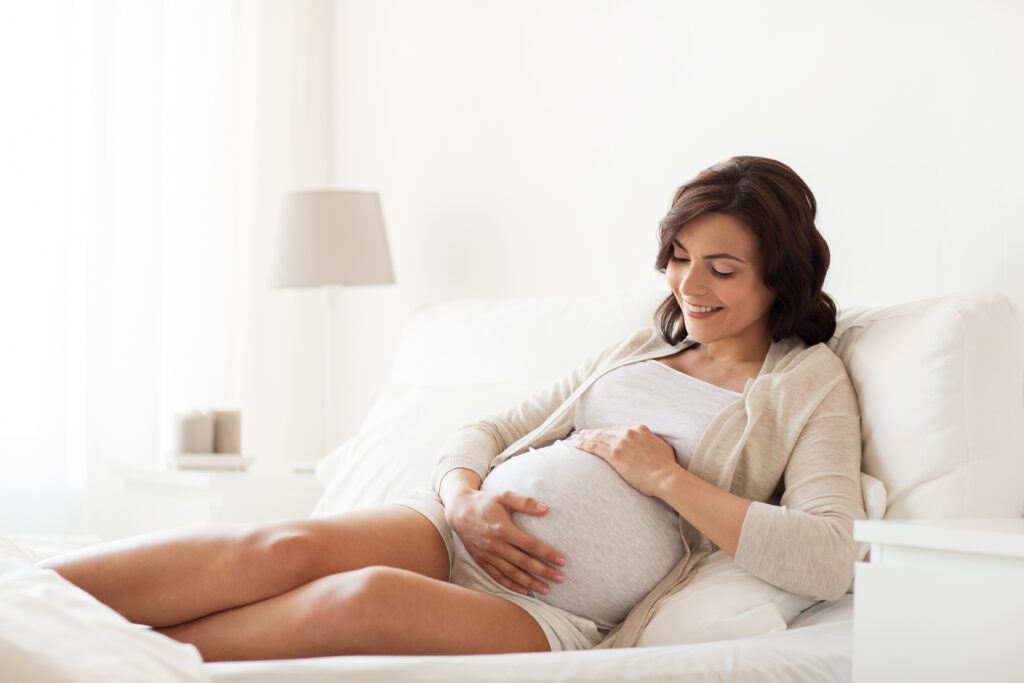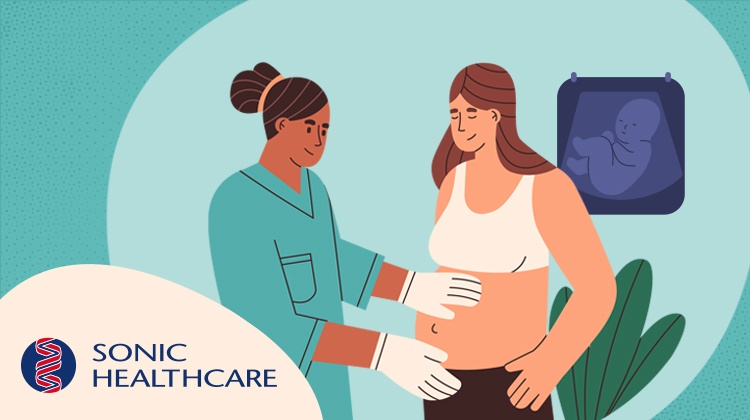Around one in seven individuals in Australia has a Rhesus D (or RhD) negative blood group. When an RhD negative pregnant patient carries an RhD positive fetus, there is risk of maternal exposure to fetal RhD antigens. Such individuals may be at risk of subsequent pregnancies being affected by haemolytic disease of the fetus and newborn (HDFN). This condition causes the red blood cells in the fetus (or in the newborn) to haemolyse, leading to stillbirth or severe neonatal jaundice.
Recommended by clinical guidelines
Traditionally, prophylactic anti-D immunoglobulin (Ig) injections were recommended for RhD negative pregnant patients, irrespective of the fetal Rhesus status. However, it is now possible to determine fetal Rhesus status by testing for the presence of the RHD gene in the placental cell-free DNA derived from the maternal blood sample.
The Australian National Blood Authority Guidelines (endorsed by RANZCOG) recommend that all RhD negative pregnant patients should have access to fetal Rhesus screening (where feasible), to ensure the responsible administration of anti-D Ig only in pregnancies where it is required, avoiding unnecessary exposure to donor blood-derived products.
Clinical screening pathway
Fetal Rhesus screening is a blood test performed on an RhD negative pregnant patient. Testing can generally be performed from 11 weeks’ gestation; however, minimal gestational age requirements may vary between laboratory providers. The detection of RHD gene sequences in the maternal plasma increases the likelihood that the fetus is RhD positive. For these pregnancies, routine anti-D Ig prophylaxis and repeat maternal antibody screening are recommended. The absence of a detectable RHD gene sequence in maternal plasma indicates that anti-D Ig prophylaxis is not required. However, if initial testing was performed prior to 18 weeks’ gestation, repeat testing may be recommended, for confirmatory purposes.
As the fetal Rhesus status may be different with each pregnancy, it is important that this testing is performed each time that an RhD negative patient becomes pregnant.
Medicare eligibility criteria
Bulk-billed testing for fetal Rhesus screening is available under two separate item numbers, depending on whether or not the prospective parent has been previously alloimmunised against RhD. It is therefore vital that the clinical information regarding whether or not the patient has been alloimmunised, confirmation of the RhD negative status of the patient, and the current gestational age of the pregnancy, is provided on the request form to ensure the correct test is performed.
73420
Non‑invasive prenatal testing of blood from an RhD negative pregnant patient for the detection of the RHD gene from fetal DNA circulating in maternal blood, if the patient has not been previously alloimmunised against RhD.
73421
Non-invasive prenatal testing of blood from an RhD negative pregnant patient for the detection of the RHD gene from fetal DNA circulating in maternal blood, if the patient has been previously alloimmunised against RhD.
Further information
For further information regarding this test, and other genetic tests relevant to pregnancy, please visit https://www.sonicgenetics.com.au/our-tests/reproductive-health/

Explore our range of news and training resources:
Bp Learning Video Library | Bp Learning Training Options | Bp Newsroom Blog
Subscribe to Our Newsletters | Bp Learning Webinars

